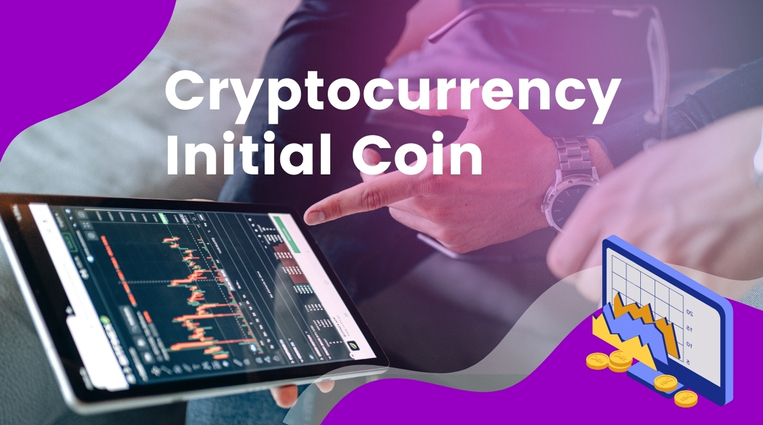Initial Coin Offerings, or ICOs, have emerged as a revolutionary method for startups and projects to raise capital in the cryptocurrency and blockchain space.
They offer a way for investors to obtain tokens or coins in exchange for their investments, potentially leading to substantial returns.
As the popularity of cryptocurrencies continues to grow, participating in ICOs has become an attractive option for many investors in India.
This article will give a complete overview of how to participate in ICOs, ensuring you are well-prepared to navigate this exciting investment opportunity.
Understanding Initial Coin ICOs: A Primer
ICOs are akin to initial public offerings (IPOs) in the traditional financial market, but instead of shares, investors receive digital tokens.
These tokens can represent various utilities within a project or can be traded on cryptocurrency exchanges. Here are the key elements to understand:
1: Whitepapers:
Every ICO typically releases a whitepaper, a detailed document that outlines the project’s objectives, technical details, tokenomics, and the team behind the project. Thoroughly reviewing the whitepaper is crucial for assessing the project’s viability.
2: Tokens:
Tokens issued during an ICO can serve various purposes, such as providing access to a platform, representing a stake in the project, or being used for transactions within the ecosystem. Understanding the token’s utility and potential value is essential.
3: Blockchain:
Most ICOs operate on blockchain platforms like Ethereum, which allows the creation of decentralized applications (DApps) and smart contracts. Familiarize yourself with the underlying technology to better evaluate the project’s feasibility.
Legal and Regulatory Landscape in India
Before participating in an ICO, it’s crucial to understand the legal and regulatory framework governing cryptocurrencies and ICOs in India.
The Indian government and regulatory bodies like the Reserve Bank of India (RBI) and the Securities and Exchange Board of India (SEBI) have issued guidelines and warnings regarding cryptocurrency investments.
- Legal Status: As of now, cryptocurrencies are not considered legal tender in India, but they are not outright banned either. It’s essential to stay updated on any regulatory changes and ensure compliance with existing laws.
- KYC and AML Compliance: ICOs often require participants to undergo Know Your Customer (KYC) and Anti-Money Laundering (AML) checks. Be prepared to provide necessary identification documents and adhere to these procedures.
Steps to Participate in an ICO
1. Conduct Thorough Research
Research is the cornerstone of any successful investment. Begin by identifying promising ICOs through reliable sources such as ICO rating websites, cryptocurrency forums, and industry news platforms. Look for projects with a clear vision, a strong development team, and a well-articulated whitepaper.
2. Evaluate the Team and Advisors
The credibility of the team behind an ICO is a significant factor in its success. Investigate the backgrounds of the founders, developers, and advisors. Look for individuals with proven experience in blockchain technology, finance, and relevant industries. Transparent and accessible teams are often more trustworthy.
3. Review the Whitepaper
The whitepaper is the blueprint of an ICO. It should provide comprehensive information about the project’s goals, technical aspects, token distribution, and roadmap.
Assess whether the project addresses a real-world problem and if the proposed solution is feasible and innovative.
4. Check for Community and Media Presence
A strong and active community is a good indicator of a project’s potential success. Check social media channels, forums, and news articles for discussions about the ICO. Engage with the community to gauge the project’s popularity and credibility.
5. Understand the Tokenomics
Tokenomics refers to the economic model of the ICO, including how tokens are distributed, the total supply, and how they will be used within the ecosystem. Ensure that the token distribution is fair and that the project has mechanisms to prevent excessive inflation or devaluation of tokens.
6. Register and Complete KYC
Once you have identified a promising ICO, visit its official website and register for participation. Most ICOs require participants to complete KYC procedures to comply with legal requirements. Provide accurate information and necessary documents to verify your identity.
7. Set Up a Digital Wallet
To participate in an ICO, you need a compatible digital wallet that supports the token standard (e.g., ERC-20 for Ethereum-based tokens). Wallets like MetaMask, MyEtherWallet, and Ledger are popular choices. Ensure your wallet is secure and that you have backed up your private keys.
8. Fund Your Wallet
Transfer the required amount of cryptocurrency (usually Bitcoin or Ethereum) to your wallet. Make sure you account for transaction fees and verify that you are sending funds to the correct address provided by the ICO.
9. Participate in the ICO
On the ICO launch date, follow the instructions provided by the project to contribute your funds. This typically involves sending your cryptocurrency to a specific address in exchange for the project’s tokens. Monitor the transaction to ensure it is completed successfully.
10. Secure Your Tokens
After participating in the ICO, the tokens will be transferred to your wallet. Ensure that your wallet is secure and consider transferring tokens to a hardware wallet for added security. Keep track of the project’s progress and stay updated on any developments.
Conclusion:
Participating in ICOs in India offers a unique opportunity to invest in innovative blockchain projects and potentially reap substantial rewards.
By conducting thorough research, understanding the regulatory landscape, and following the steps outlined in this guide, you can make informed investment decisions. Stay vigilant, diversify your investments, and prioritize security to maximize your chances of success in the dynamic world of ICOs.
